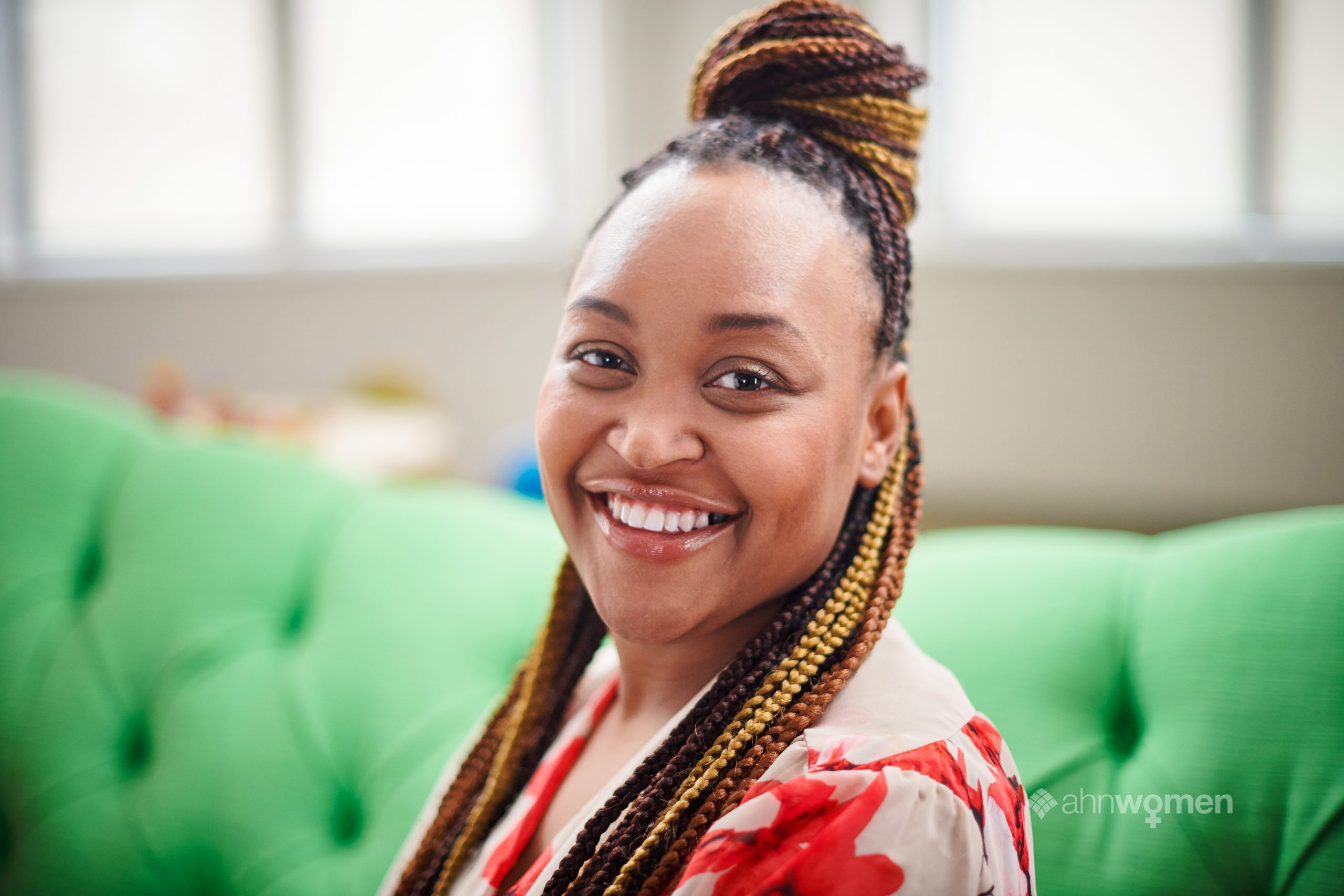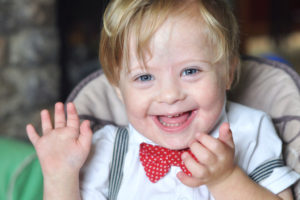May is Maternal Mental Health Month — giving us all an opportunity to pause and reflect on the mental and emotional health of moms and moms-to-be.
At Allegheny Health Network, we are devoted to caring for women — all of her, all of her life. A large part of that is focusing on a woman’s mental and emotional well-being and stepping in to support her when she needs us.
Our Women’s Behavioral Health Program helps women heal — with a special focus on moms affected by postpartum depression. We’ve also championed MyWishForMoms.org — a blog about real experiences, real struggles, and real solutions.
As we work together to break the stigma of postpartum depression — we bring you Rochelle’s story, a mother of three and a postpartum depression survivor. Read her story, told in her own words.

When I first began to think that I had postpartum depression, I was in denial. The stigma connected to the diagnosis had always seemed negative — those who had it were usually on the news for killing their children and society attacked the truth of the claim. Accepting such a label came with the feeling of defeat and being a bad mother. How could I, Rochelle, have postpartum depression?
I felt guilty for how I felt because I was blessed to have the ability to birth a child and have a husband who is a hands-on partner and parent. I had just graduated with my bachelor’s degree in social work and worked for child protective services in my local county. I had provided children a safe place to live and worked with parents who had different mental health issues. Yet, I found myself depressed — sitting in the dark, with no television, barely eating, with a newborn baby and breastfeeding.
When I Googled postpartum depression, I didn’t match what the internet described. I didn’t want to harm my baby. I still enjoyed parenting my other two children. And, it didn’t mention starting to strongly dislike your spouse for lack of understanding.
Suffering in silence
From this point, only two weeks after giving birth, I decided I would suffer in silence and get over this emotional hump by myself. My plan to avoid addressing my feelings was this: I would sit in the same spot, all day, after dropping the children off at school. When my husband returned from work, I’d turn on the television and find the strength to be happy to see him and the children. Sadly, the more I hid my feelings, the worse the depression became.

One day, as my husband came into the house, he asked me: “Have you been sitting there all day in the dark?” I responded “yes,” but he didn’t make anything big out of the answer. I attempted to address my feelings with other family and friends. They either downplayed my feelings or expressed the seriousness of postpartum depression and how I could be involuntarily committed into a mental health facility.
There I sat for another week, screaming literally on the inside and outside for help. I am considered the “strong friend” of my group — so at my moment of weakness — nobody thought I had an excuse to not clean, cook, or bathe. They thought I’d shake the feeling in no time. My mother and friends kept saying that I should just stop breastfeeding. That made me very angry because the last thing I needed was another reason to feel defeated and like a bad mother.
Reaching out for help
It wasn’t until I took the baby to his 1-month checkup and his doctor gave me the postpartum depression screening that I sat asking myself: “Do you really want the help or not?”
In the African American community, mental health isn’t addressed. Those who do address it are often labeled as “crazy.” Being in the field of social work gave me the knowledge that if I was honest on the screening, exposing my mental health crisis, the doctor and I were then held responsible for the information. I completed the screening honestly and felt relieved of the mental prison I sat in everyday alone because no one understood the thoughts that ran through my head.
The doctor and the nurse walked back in the exam room and I saw the alarm on their faces. They recommended I contact my OB-GYN, who referred me to the Women’s Health Behavioral Center at AHN. Finally, someone heard my silent cry for help.
Throughout my time receiving counseling for postpartum depression, things got worse before they got better. I refused medication for a year. My marriage felt most of the effects, and I even purchased divorce papers. My counselor and close family and friends talked me off that ledge, but I felt as if my husband didn’t understand and wasn’t supportive of my current mental state. Just like I did, he did his research on postpartum depression, and he didn’t believe I had it because I didn’t match the criteria.
It wasn’t until I began to have suicidal thoughts that he realized it was deeper than just mood swings. Those suicidal thoughts became worse by the day until finally, I texted my sister something that frightened her. Once I got to the children’s school, one of the teachers asked me if I was OK, and I broke down crying. I told her about my suicidal thoughts. From there, my husband and sister talked to me and I called my counselor and agreed to medication.

Moving forward
Today, I’m able to look back and see that my husband was very supportive with the knowledge he was given. I’m happy we were able to get back on track, even stronger than before.
This experience did leave me to wonder: How many marriages end due to untreated postpartum depression? And where are the support groups for the husbands and mates that have a partner experiencing such an emotional diagnosis?
As I pursued my master’s degree in social work, I was required to write about a mental health diagnosis. I chose postpartum depression just to gain more information and was shocked by the results. The fact that there is no clear indicator of how one develops postpartum depression was mind blowing.
Throughout my postpartum counseling, I have been diagnosed with generalized anxiety disorder, major depressive disorder, and post-traumatic stress disorder, all of which stem from the trauma of my childhood. Although I am in a better mental space and was able to heal from some of the childhood trauma on this unexpected journey, I am still left with unanswered questions. One of the major questions is, if I wouldn’t have experienced such childhood trauma, would I have still experienced postpartum depression? Is my daughter likely to experience it even though she doesn’t have the childhood trauma? And, as a social worker, is treating postpartum depression through therapy enough if we still don’t have enough information on what causes it?
While we wait for these answers, the only thing I can do is share my honest experience with other women to let them know suffering in silence is no longer an option. Heal, sister.
If you or someone you love is suffering from postpartum depression, please contact AHN’s Women’s Behavioral Health Program at 1-866-951-6390















